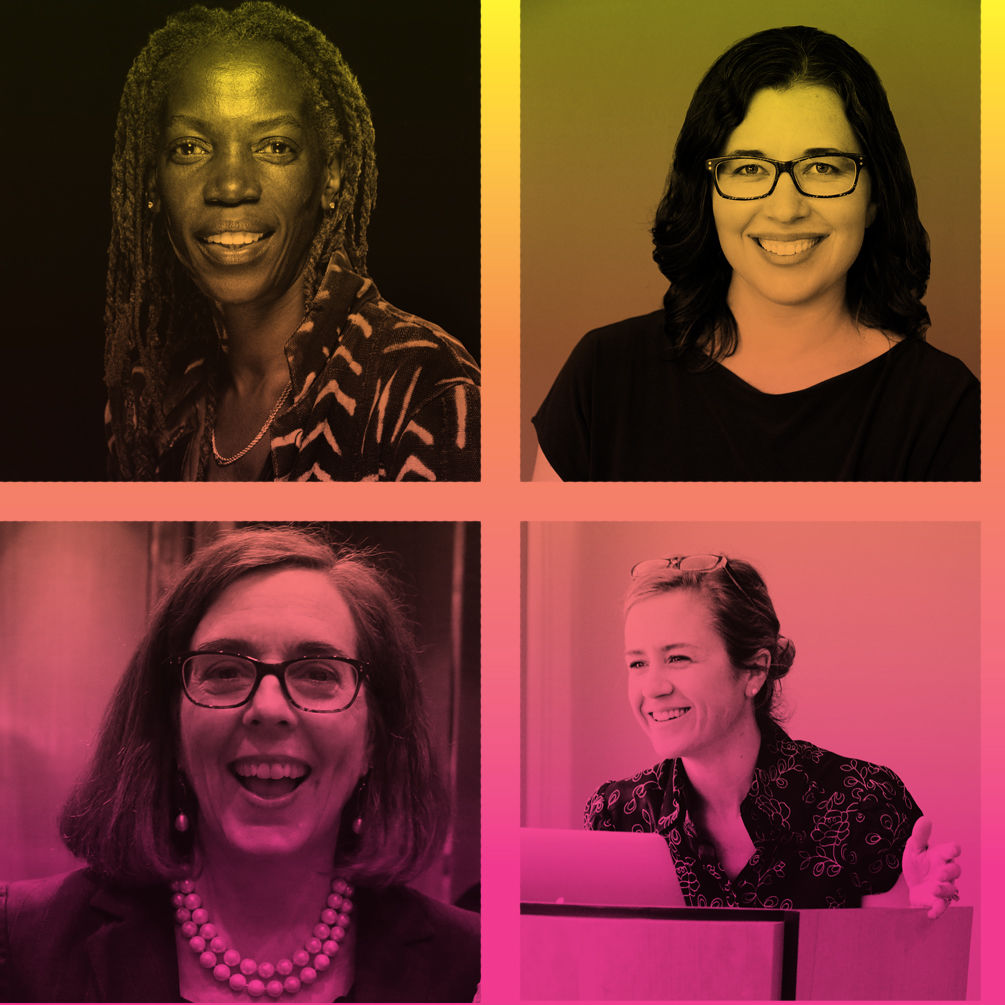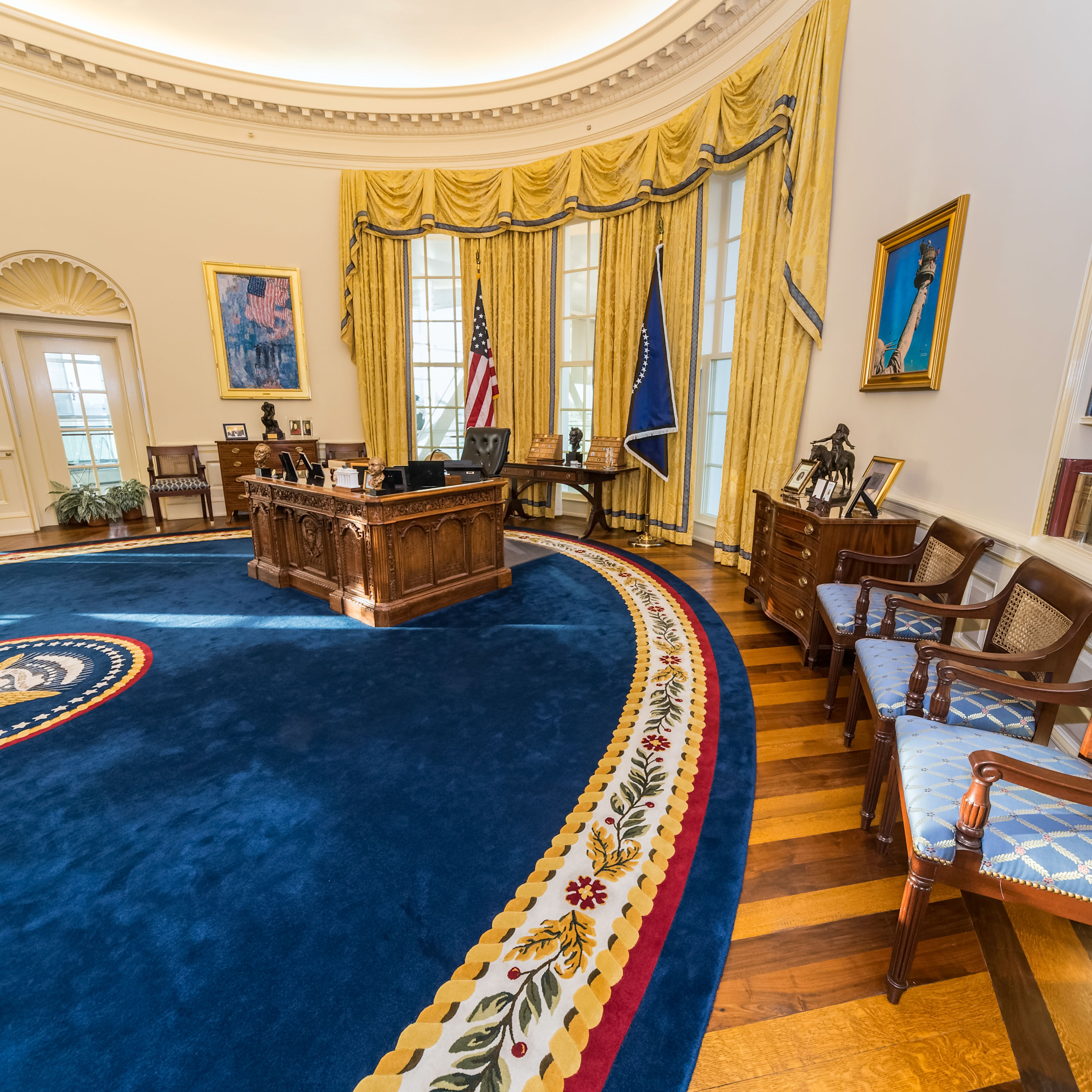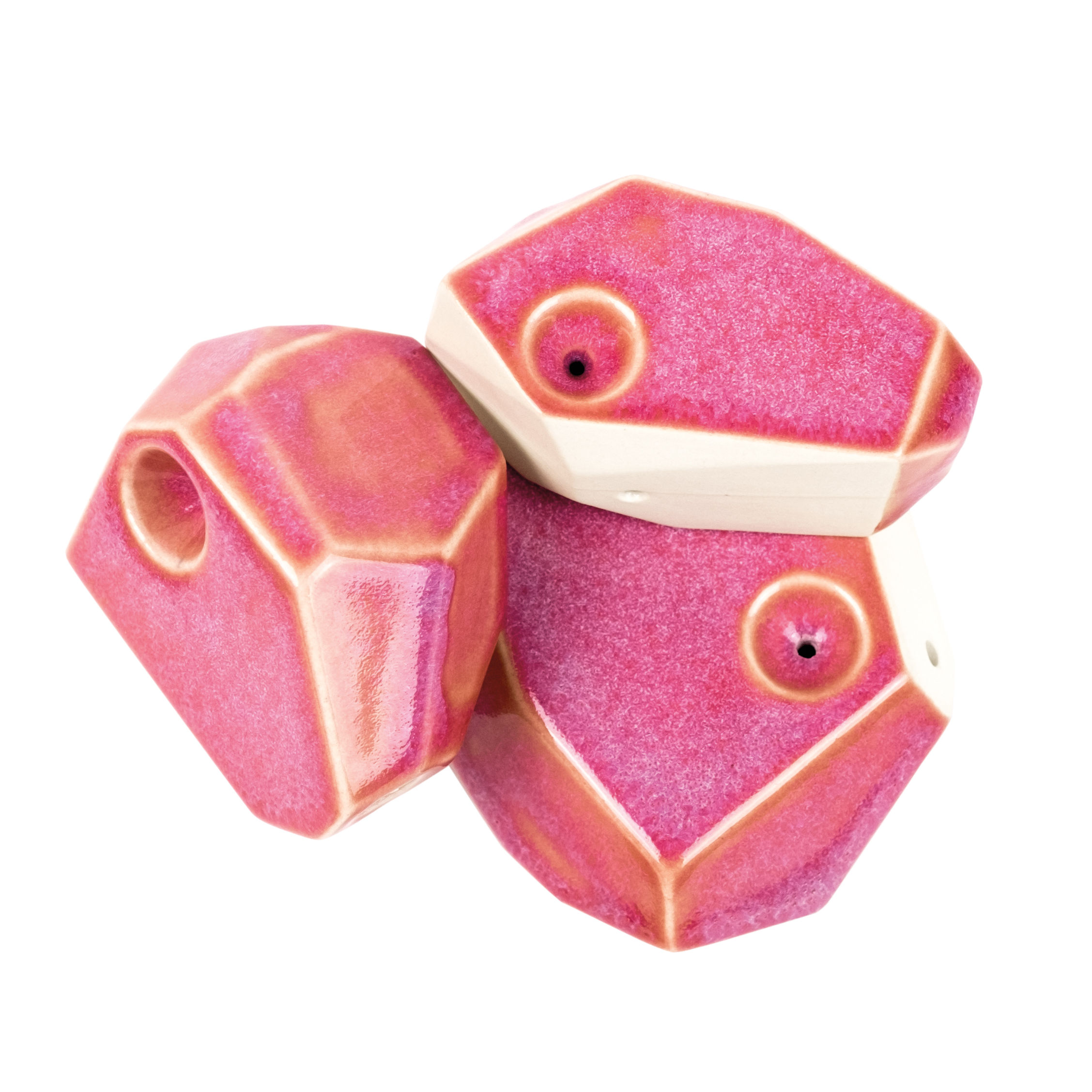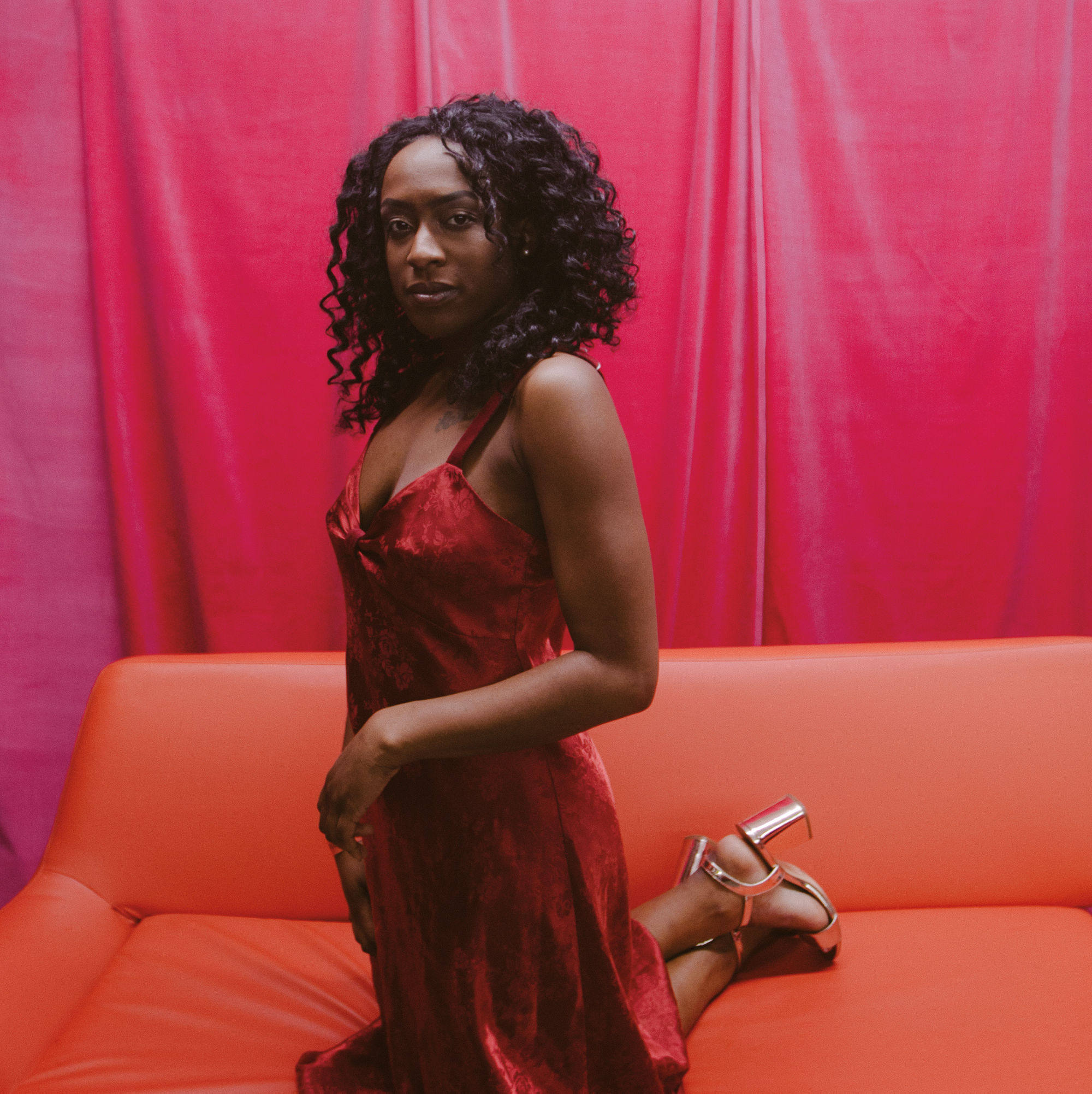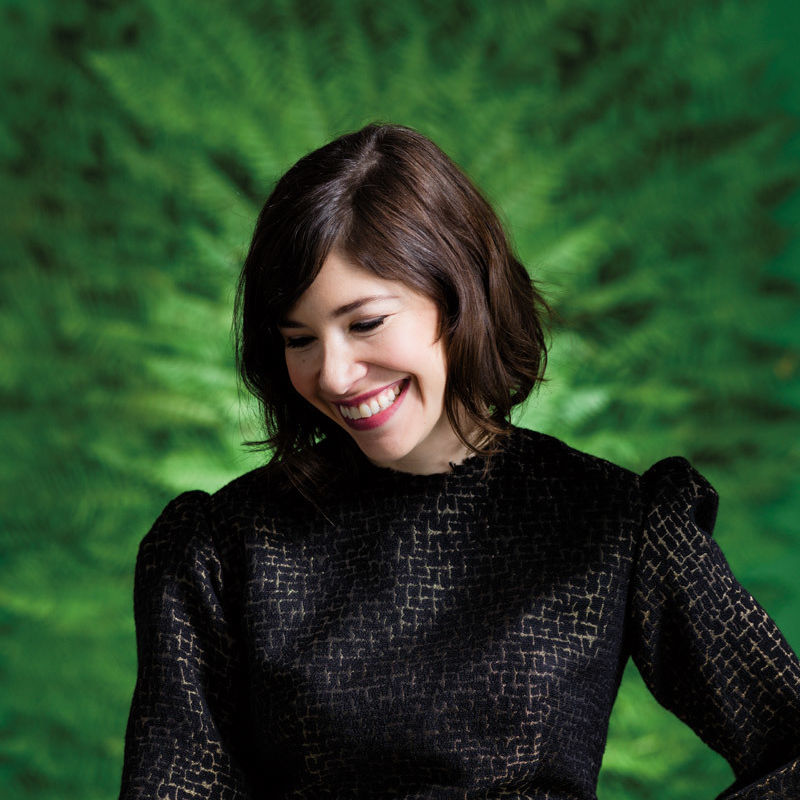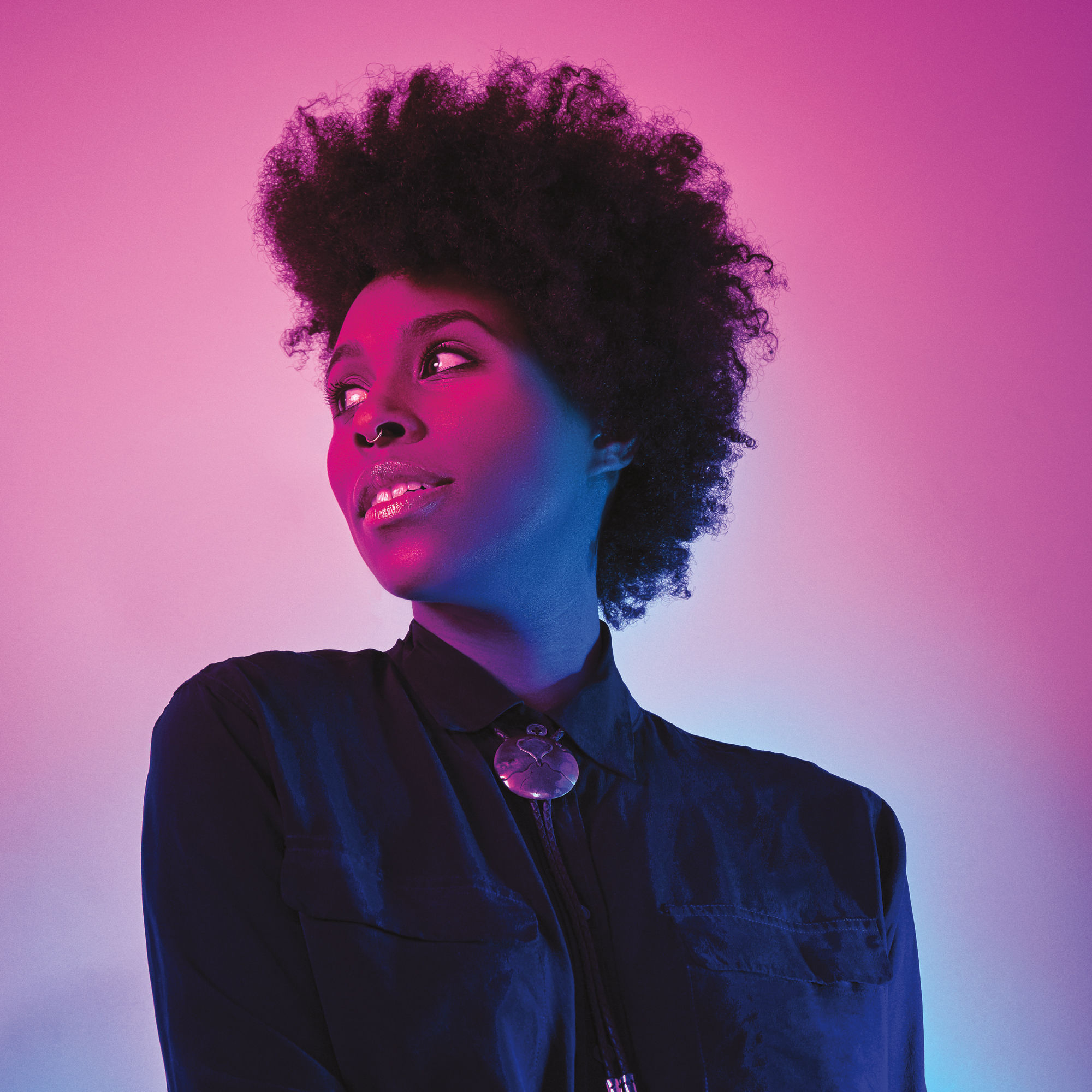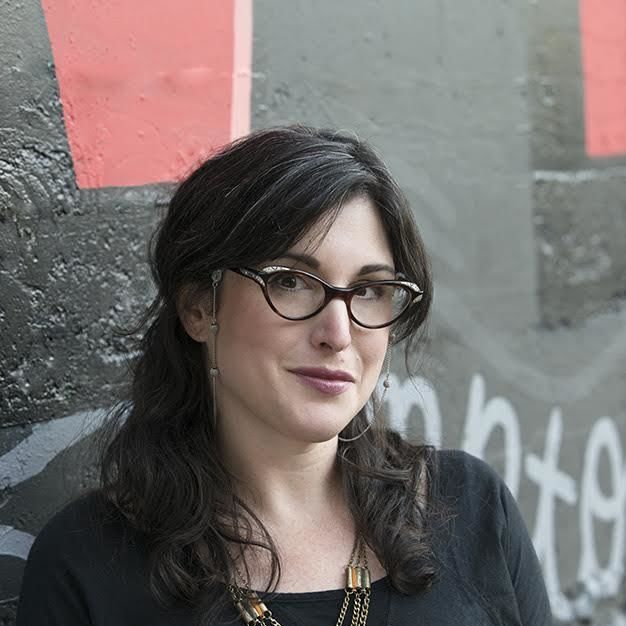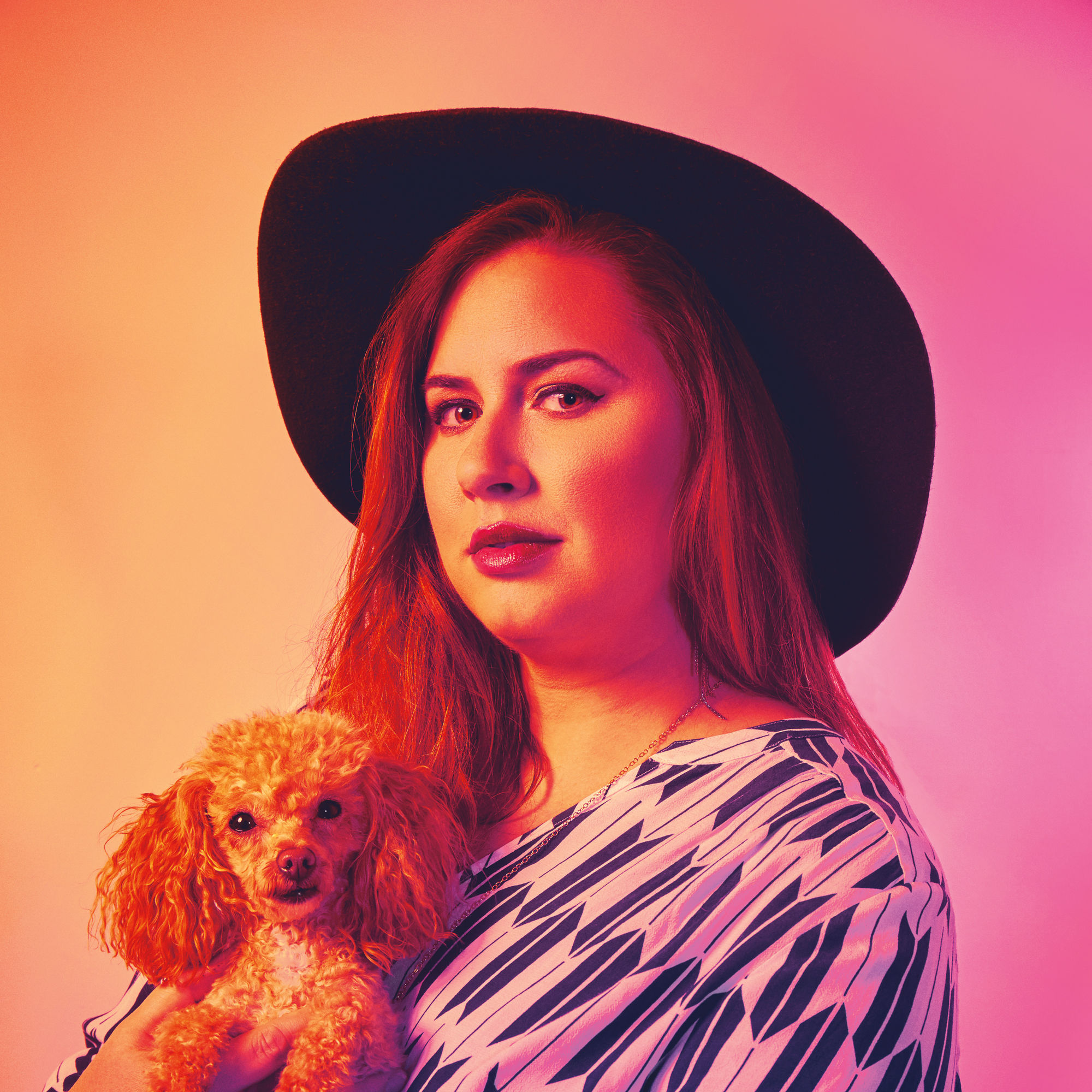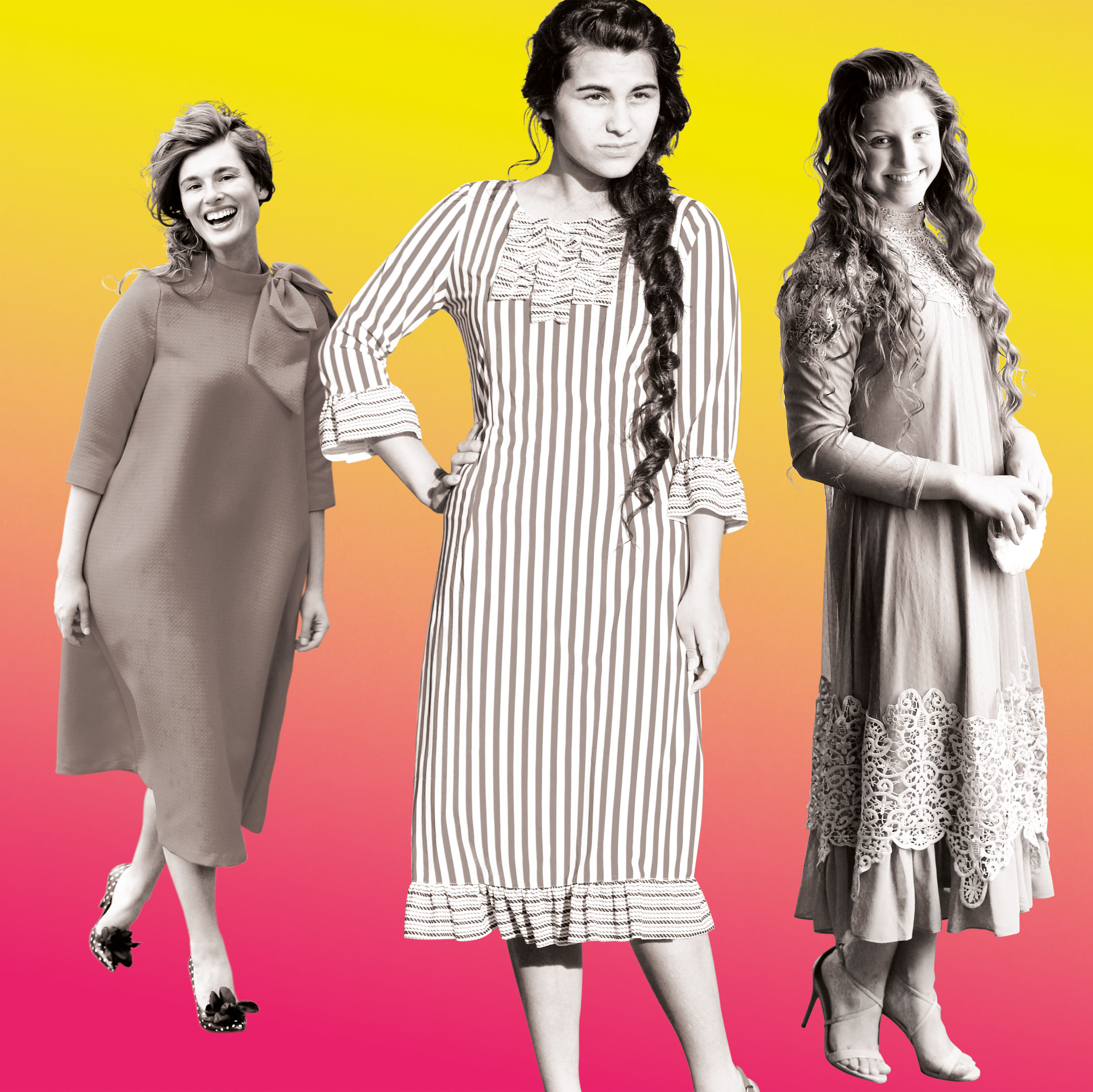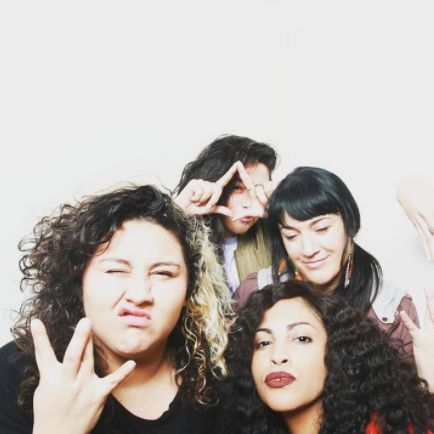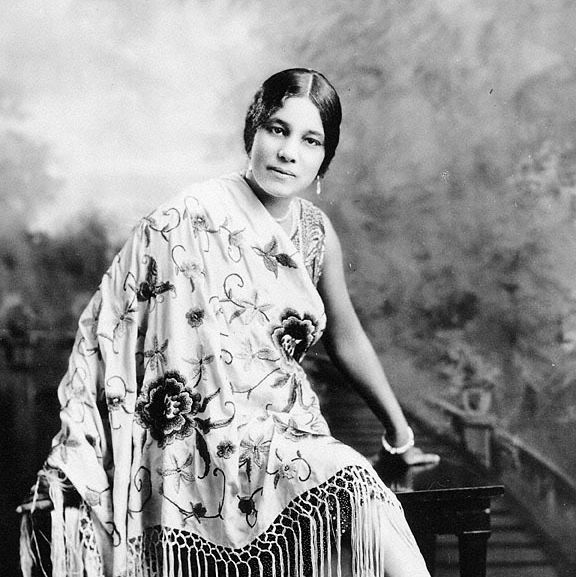Andi Zeisler and Bitch Media Pushed the World to See Pop Culture through Feminist Eyes
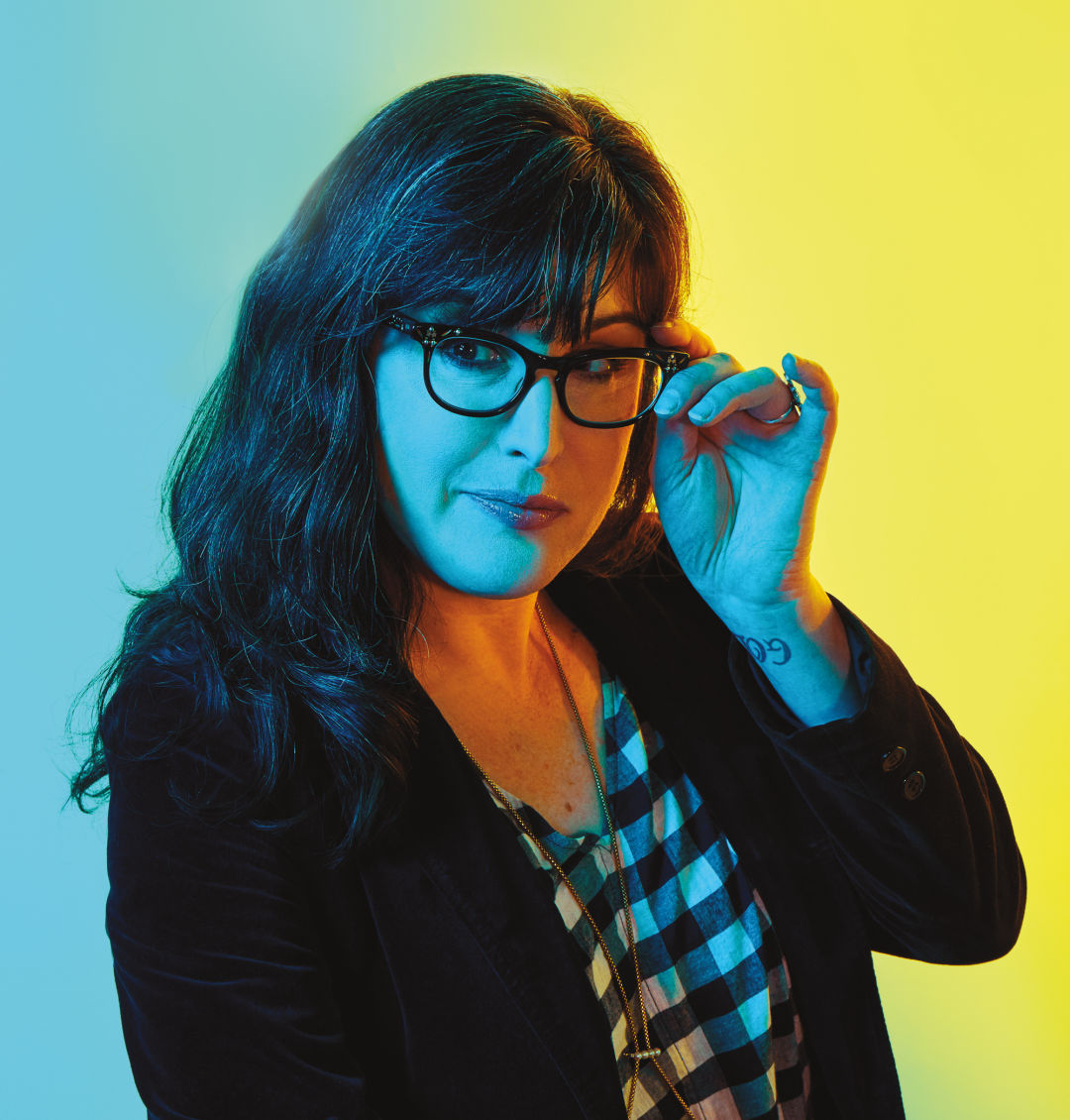
"Feminism is not fun. It’s complex and hard and it pisses people off."
Image: Nicolle Clemetson. Hair and Makeup: Abibat Durosimi
Andi Zeisler, cofounder of Bitch magazine, handed me a dog-eared copy of Norma Klein’s It’s OK If You Don’t Love Me, a 1980s young adult novel with a pair of feathered-haired teens canoodling on the cover. “This was my first feminist influence,” she said.
Zeisler explained Klein’s appeal in a Bitch article way back in 1998: “If Judy Blume was the wise older sister nimbly guiding us through the confusing realm of maxi-pads and training bras, Norma Klein was the wacky, worldly aunt ready to blow our minds with a feminist, intellectual outlook on sex and relationships that would make us look twice at what the movies proclaimed as the Way Things Are.”
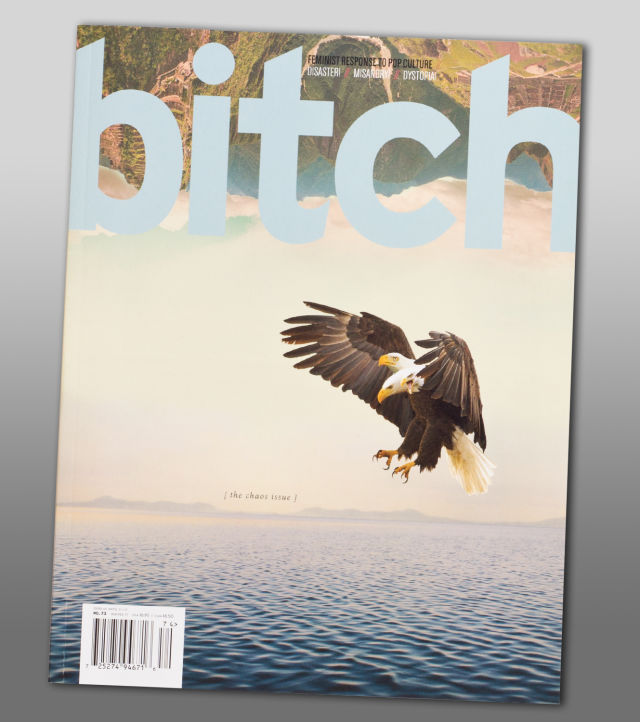
Winter 2017 Chaos Issue
Image: Courtesy Andi Zeisler
Today, Zeisler herself serves as a counterpoint to the Way Things Are. With Bitch Media, a scrappy, Portland-based feminist organization with an outsize influence, she has challenged, loved, and obsessed over pop culture for two decades. The quarterly Bitch magazine and constantly active website—where side-eye analysis of Game of Thrones and The Bachelor coexists with reports on Israeli women making politicized club music—have evolved into a chatty midwife for America’s evolving perceptions of and reactions to feminism. Today’s Bitch brings readers articles with titles like “Performance Anxiety: Trump and the Commodification of Dissent in the Tech Industry” and “Dark Habits: American Horror Story and the Gothic-Nun Tradition,” but also podcasts on the symbolism of Beyoncé’s February pregnancy announcement.
“I always believed that the realm of media and popular culture was where feminism would change hearts and minds,” Zeisler explains.
If that was always the idea, though, now might be that idea’s moment. Zeisler, 44, has become a national media voice, with a fan cohort that runs from Ashley Judd to Orange Is the New Black’s woke bro Matt McGorry. In a May 2016 review of her book We Were Feminists Once: From Riot Grrrl to CoverGirl, the Buying and Selling of a Political Movement, the New York Times called her a “incisive, tough-minded writer, attacking her subjects with a diamond cutter.” Four months later, the Internet convulsed with delight (and distaste) when the Times printed “The Bitch America Needs,” a Zeisler pre-election essay on Hillary Clinton’s prickly persona. And on a daily basis, Zeisler is called upon to opine on whether it’s OK to buy Thinx period panties or wear Wonder Woman–branded lipstick.
Her hot take: like what you like. Just think hard about who is selling it to you and why.
“People say, 'It’s just a book, it’s just a movie, just an ad,’” she says. “Why can’t you just enjoy it?’ That’s at the crux of what we do. Pop culture is not neutral. It’s telling you stories, it’s selling you narratives, it’s trying to get you to buy into very specific ideas.” (What's Zeisler digging right now? She shared some of her current pop culture picks with us.)
In the beginning (San Francisco, circa 1996), Bitch was Zeisler, Lisa Jervis, and Benjamin Shaykin: New York high school friends who reconnected on the West Coast over deep feminist conversations about feather-light pop culture diversions. (Why do the teen girls on Beverly Hills 90210 use baby voices when they talk to boys? How come seemingly every cover of Rolling Stone includes a naked lady behind a guitar?)
“We were very much frustrated readers,” says Zeisler, who had interned at Ms. magazine with Jervis. “We wanted to read something that we didn’t see: a feminist response to pop culture.”
So, they made it themselves: Bitch, a blend of Entertainment Weekly and social science journal that ping-ponged from examining the female archetypes in MTV videos to objectifying Pulp Fiction–era John Travolta. The uncompromising name was part reclamation, part “anticipatory retaliation.” “We were inspired by the idea that you could take something that was used against you and use it as a point of pride,” Zeisler recalls. The trio set up Bitch as a nonprofit, primarily supported by readers rather than ad sales, affording the freedom to slam brands with impunity. (It also meant that some months they’d barely have the funds to print the magazine.)
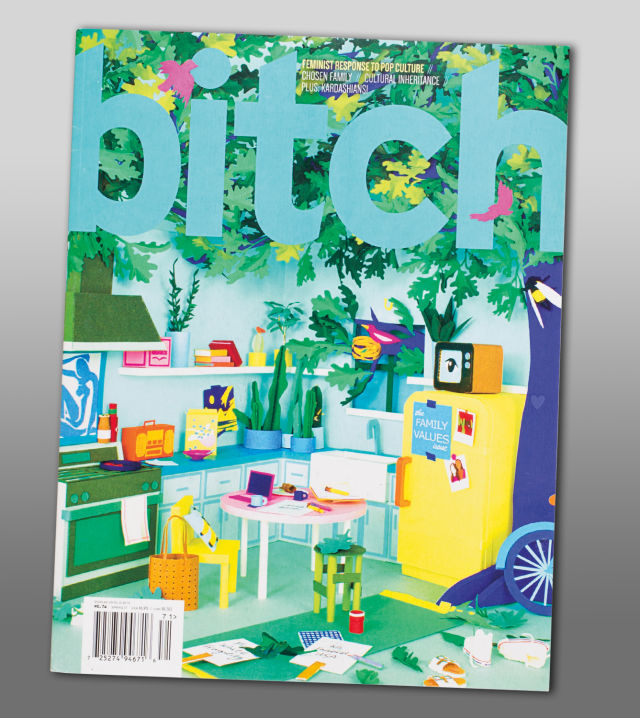
Spring 2017 Family Values Issue
Image: Courtesy Andi Zeisler
The bright, mouthy zine hit a nerve. Two decades, three offices, and one 2007 move to Portland later, Bitch Media (as the 501(c)(3) is now known) patented a worldly, wisecracking tone that presaged a feminist-tilted entertainment world that now encompasses everything from Jezebel to Bad Feminist author Roxane Gay. Publisher Kate Lesniak estimates Bitch Media reaches 4.5 million online readers around the globe, with print subscribers in nearly every nation. The organization’s public radio–style sustaining membership program, the B-Hive, doubled its membership in just the past year.
Audience is one thing; influence is another. When the NYT ponders the emasculating effect of Melissa McCarthy playing Sean Spicer on Saturday Night Live, or BuzzFeed runs “19 Gifts Every Proud Feminist Will Absolutely Adore,” the mainstream media is borrowing Bitch’s cat-eye glasses to examine the culture. In response, Bitch seems determined to remain sharper and push harder than its cohort, with in-depth reports on man-made environmental disasters and niche book and art reviews about, and often written by, people from groups that are underrepresented in media. Kathleen Hanna, singer of the riot grrrl band Bikini Kill, nailed it in a 2014 interview: “Bitch is not afraid to be too smart, too activist, too academic, or too angry. I don’t want ‘feminism lite.’ I want the real deal.”
Publisher Lesniak, who brings along a grassroots fundraising model from her days with Howard Dean’s Democracy for America PAC, sees that as the reason Bitch is thriving: “For-profit news organizations talk about things from a feminist perspective right now because it makes them money,” she says. “The minute being less feminist makes more money, it will shift. Bitch is here to make the world more feminist, rather than to make more money.”
Zeisler stepped down as Bitch’s editor-in-chief in 2012 to run the organization’s most ambitious new programs: a robust Bitch on Campus speakers bureau, which sends Zeisler and other writers to schools across the nation, and paid fellowships for young writers. But the magazine’s very tone—sardonic, thoughtful, and, yeah, bitchy—remains pure Zeisler, a woman staffers insist still thinks up the best headlines and social media zingers.
Since stepping down, she also wrote a book born of a long-simmering observation: feminism, once radical, has become cool. This is “marketplace feminism,” compatible with slogan T-shirts and Taylor Swift’s “squad,” a marketing trope for brands from CoverGirl to Verizon, a feel-good synonym for personal choice rather than an engine of social change.
“There is a fine line between celebrating feminism and co-opting it,” she says. “Marketplace feminism is just about selling more shit to women by tweaking the sales pitch.”
We Were Feminists Once debuted last May—a delightfully snarky-yet-wonky takedown of feminism’s depoliticized, defanged makeover, peppered with shout-outs to barrier-busting streaming media (Transparent! Master of None!), thickets of history, and commentary on the lady-marketed product tsunami. Zeisler notes that by 2015 you “couldn’t swing a tampon without hitting something that boasted its feminist import ... energy drinks to Playboy.”
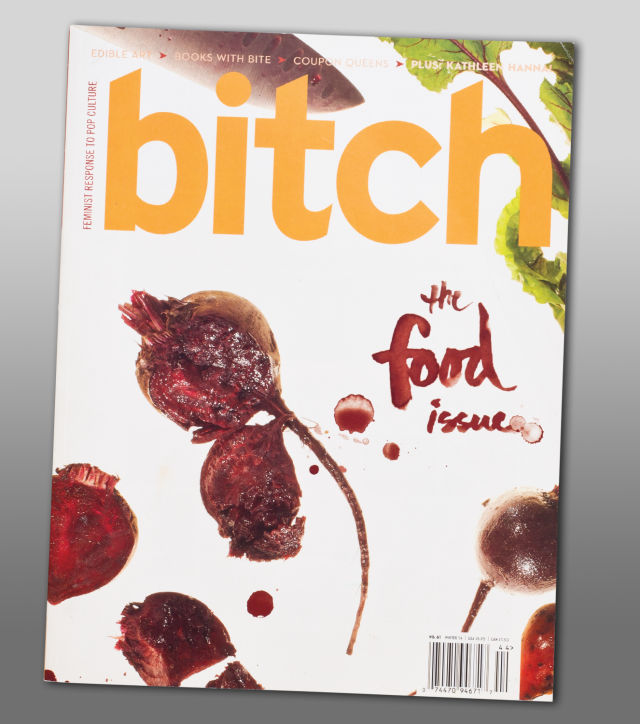
Winter 2014 Food Issue
Image: Courtesy Andi Zeisler
On the page, as in person, Zeisler shifts seamlessly from pop commentary to activism, weaving references to Amy Schumer and The Mary Tyler Moore Show with jaunty explanations of “gender essentialism.” The book is funny, fearless, frustrating, and hopeful, and a boon companion to the conflicted feelings many of us harbor about empowering shampoos, or, you know, Sheryl Sandberg in general.
“Feminism these days really does look brighter and cooler and easier than ever before,” she writes. “The problem is—feminism is not fun. It’s complex and hard and it pisses people off ... I want feminism to be meaningful long after no one is singing about it, or name-checking it on red carpets, or printing it on granny panties.”
Zeisler thought that her book would become an artifact from a brief trend. Instead, thanks to rapacious corporations and a bonkers presidency, the manifesto cemented her as a feminist spokesperson.
Feminism has gone from an outsider critique to a marketing strategy, but it remains in opposition to many of the forces that run the world. Which only means that Zeisler, who calls that fraught progression as she sees it, has a mission just as vital now as she and her coconspirators did in 1996. In February she launched a biting new weekly online column for Bitch—on media in Trump’s America.
“I’ve already noticed that [our political situation] is affecting people’s ability to read sarcasm. And what do we have if not humor during these trying times?” she says, breaking into a deadpan smirk.
Being a bitch has never seemed more relevant.
